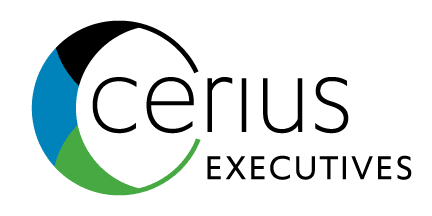Hiring Veterans: What Military Skills Could Your Organization Use Most?

Contributed by Kristen McAlister
In addition to being co-owner of Cerius, I am also a military wife. My husband, Mike, is a Captain in the United States Marine Corps. We have often discussed what happens when men and women who have only known the military get out. Being in the job market and creating a resume of what you have done and can do for a company is not easy for most. This is compounded when your background and what you can see is a bit of a foreign language to the companies hiring you.
With recent cuts and more to come, there is an overwhelming availability of military veterans available in the workforce both recent and not so recent. I am happy to see support focused on encouraging businesses to hire skilled workers such as iHeartRadio’s Show Your Stripes campaign.
Over the years, Mike and I have often compared the operating procedures of the civilian and the military worlds. We have shared ideas and exchanged Standard Operating Procedures (SOPs). Whether utilizing a critical path or a five paragraph military order, both approaches end up with a well thought out and executable plan. The biggest difference is the military personnel are better at the execution part.
The Skills and Experience Your Company Needs
Despite veterans having worked for what can be considered the most bureaucratic company in existence, the US government, they have also worked for one of the most finely tuned machines, the US military. Military veterans have not only life experiences but also applicable work experience to the civilian world beyond their years. Listed below is a small sampling of the military skills which can have a positive impact on any organization.
- Planning – According to Cerius’ Company SnapShot™, a performance assessment tool for company managers, Planning is the lowest rated area. On an operational level, few do this better than military personnel. It is common to have military personnel and veterans recite the six Ps: ‘Proper Planning Prevents Piss Poor Performance’. This is a mantra they live by.
- Processes and Procedures – These can be found as the biggest weaknesses on most company SWOTs. With a typical job assignment of 2-3 years, these are critical and used throughout the military whether there is an overlap for a hand-off or the position is vacant for a period of time. You can count on SOP being their standard mode of operation.
- Leadership – Even those who are not in a formal leadership position are taught to be leaders among their peers. If something goes wrong, all who are present are held accountable for it. Your buddy breaks a rule and you could have stopped him, you are as much at fault. Setting the right example and working as a team is instilled throughout.
- Attention to Detail – Making a mistake in the military typically has far dire consequences than it does in most companies. Mistakes are not overlooked. They are addressed quickly and proportionately.
- Dependability – My husband always says, “If you are not 5 minutes early, you are late.” They will be there and be early. They do not let their team down.
- Adaptability – They are trained to think on their feet while following the guidelines they are given.
- Responsibility – At a very young age (early to late twenties), they are responsible for large numbers of men/women (hundreds) and assets (hundreds of millions).
At Cerius, we have a naval veteran on staff and more than 5% of our executive bench have military experience. They are all incredible assets to our team.
We are seeing a large upturn in companies hiring right now. We strongly encourage you to look beyond the resume and take the opportunity for them to show you all they can do for you and your company.
To contact Kristen McAlister please send an email to [email protected]

